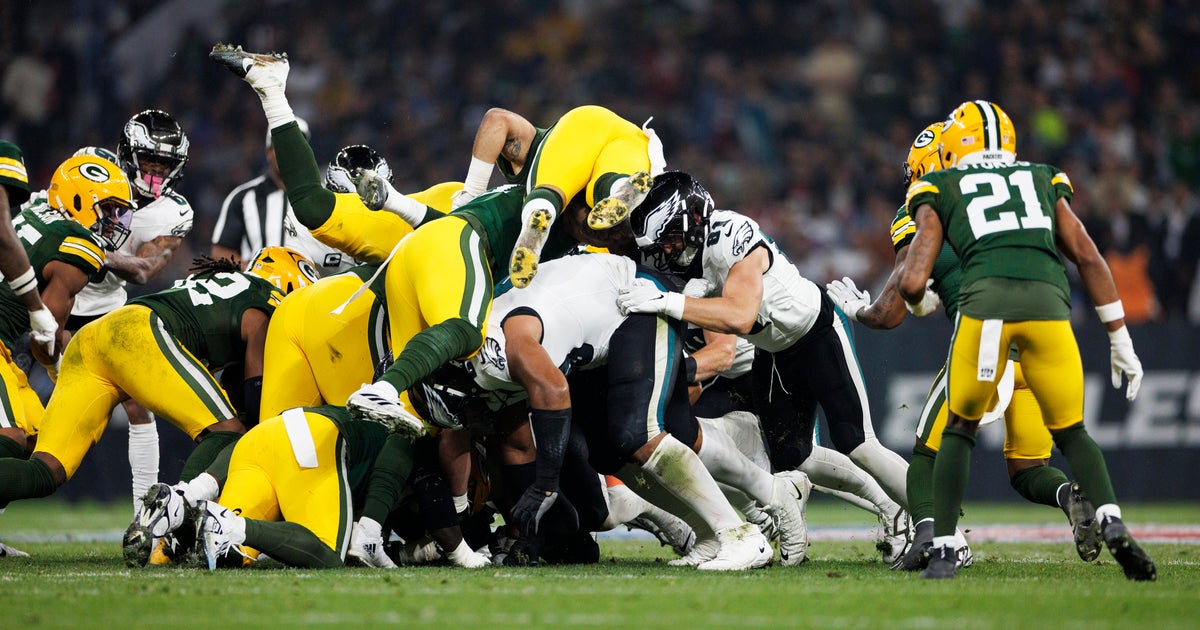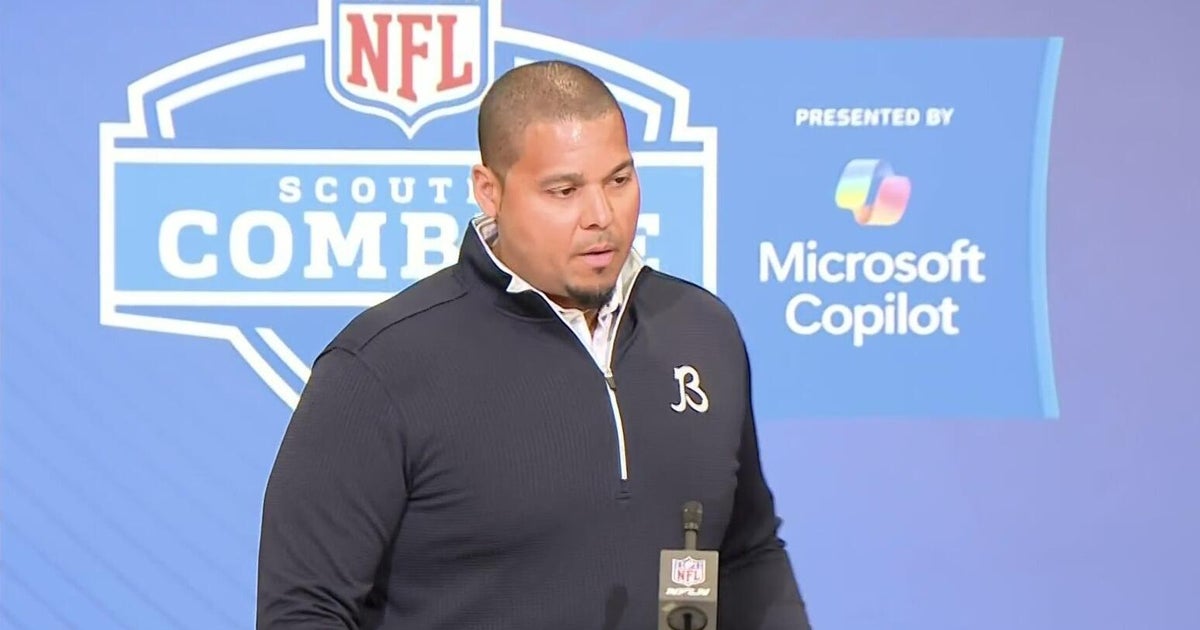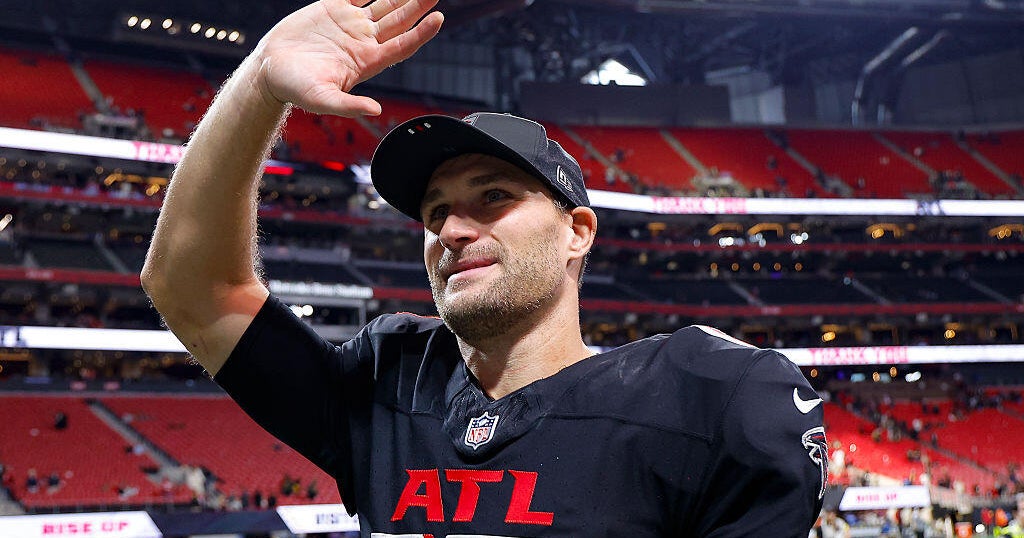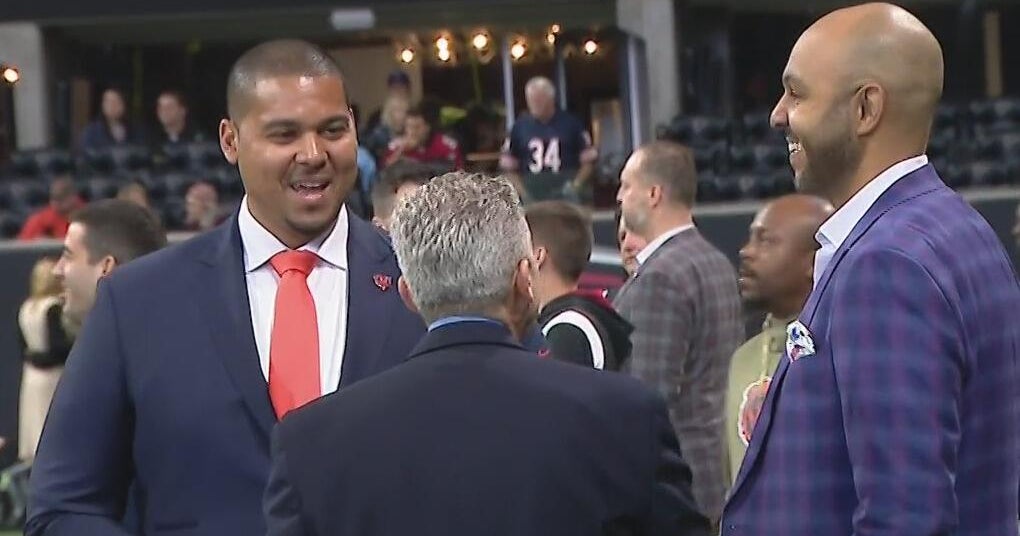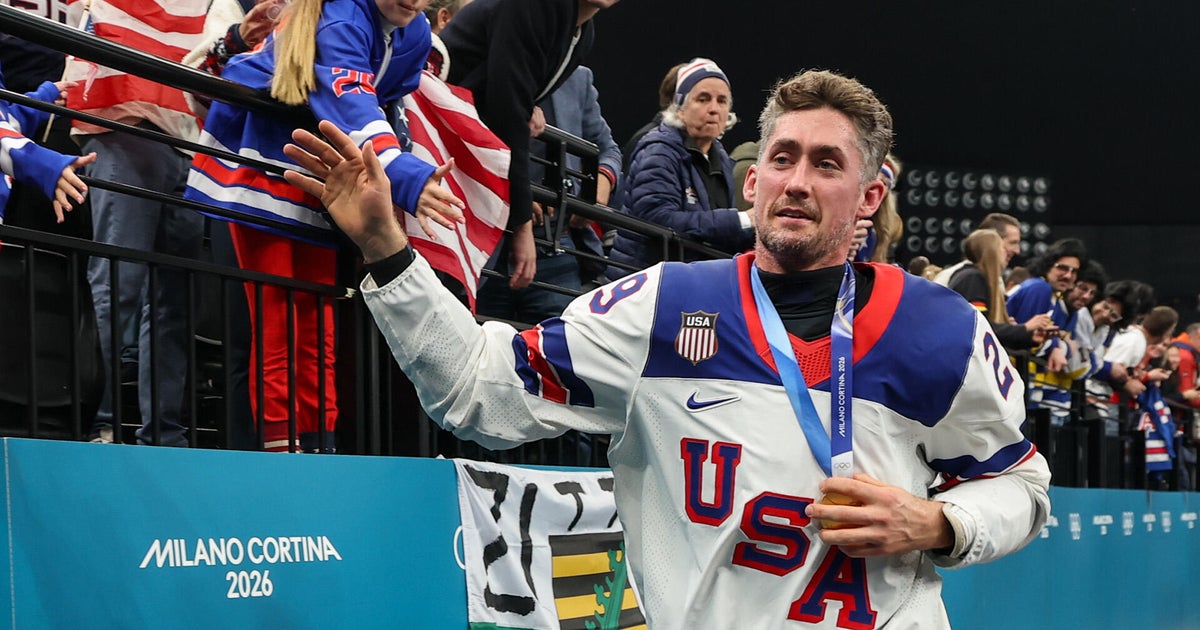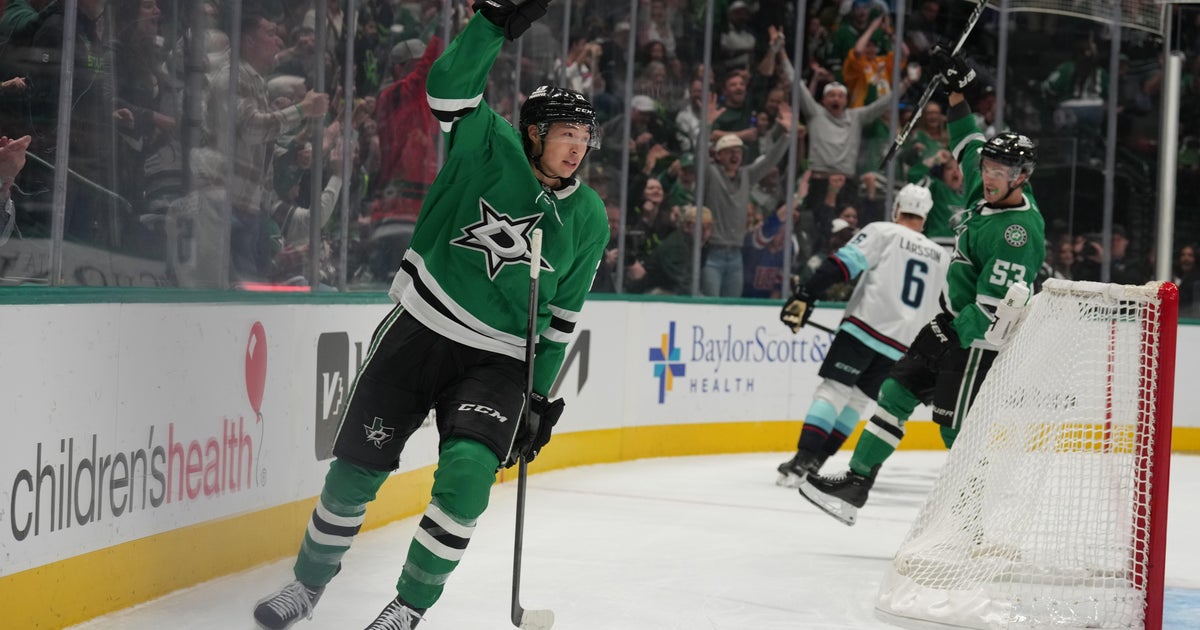Cowboys Making A Deadline Trade? Why NFL Teams Don't Do It
IRVING (CBSDFW.COM) -- NFL deadline trade ideas are fun. They are the stuff that sports-talk-radio dreams are made of.
Unfortunately, after the media/fan proposals are made, after the dust settles and after teams gauge the measurable value of what's being sacrificed against the fanciful acquisitions being discussed … sports-talk-radio dreams of "monster trades'' die.
"You are always open, always listening,'' Cowboys vice president Stephen Jones says. "But the sort of trades (the public) talks about generally just don't happen.''
This is a bubbling issue in Dallas, because as the Oct. 29 trade deadline approaches, the Cowboys are in playoff contention but in injury trouble. They will play at Philadelphia this week for the NFC East division lead (both clubs are 3-3) and will likely do so without starting running back DeMarco Murray, future Hall-of-Fame defensive end DeMarcus Ware and former Pro Bowl defensive lineman Jay Ratliff, who is not showing enough health-related progress to come off IR.
As a result, Cowboys watchers talk dreamily of giving up trash for treasure, or about sacrificing future draft picks for a "win-now'' pickup.
Will Jacksonville give us running back Maurice Jones-Drew? Hey, why wouldn't Minnesota hand over defensive end Jared Allen? Couldn't we trick some sucker into accepting oft-injured and pricy receiver Miles Austin?
Here's the reality check: In the last seven Octobers, NFL teams combined to orchestrate a total of 10 deadline trades. That's 1.42 trades per season – hardly worth the pre-deadline hubbub.
Furthermore, the deals are rarely impactful in terms of superstar value. Here's the year-by-year total:
2012 – Buccaneers trade Aqib Talib to New England.
2011 -- Bengals trade Carson Palmer to the Raiders; Broncos trade Brandon Lloyd to the Rams; Eagles trade Ronnie Brown to the Lions.
2010 -- Chiefs trade Alex Magee to the Buccaneers; Browns trade Jerome Harrison to Philadelphia for Mike Bell.
2009 -- Rams trade Will Witherspoon to the Eagles; Bucs trade Gaines Adams to Chicago.
2008 – Zero deadline trades.
2007 – Chiefs trade Michael Bennett to the Buccaneers.
2006 – Bucs trade Anthony McFarland to the Colts.
What to take from all that? Well, Tampa Bay was involved in four of the 10 swaps. So maybe their fans are justified in October excitement. Also, none of the deals propelled their teams to particular greatness. Oh, and in terms of the headlines generated at the time, the Bengals trading quarterback Carson Palmer to the Raiders was considered to be of "monster'' importance.
And … it wasn't.
While one deadline deal was consummated in last year's NFL, the NBA featured 11 such deals. Baseball, too, has made a "second sport'' of its various transaction deadlines.
So why doesn't it work that way in the NFL? There are six major reasons:
- Compensatory picks: If a team owns a player in the final year of his contract (as is the case with Jones-Drew and Allen), it will receive a valuable compensatory pick when he signs elsewhere as a free agent. So, teams are wise to milk the standout player for his value for the rest of 2013 and accept the eventual compensatory pick (usually a third-rounder) rather than trade away the player for a pick that might not be as valuable as the compensatory.
In other words: Jacksonville would be stupid to trade Jones-Drew for a third-rounder … because they can keep him this year, watch him sign elsewhere next spring … and get the same third-rounder anyway, for free. - Salaries and value: Consider a veteran's salary. (In the case of Allen, it's $17,063,956 for this season.) Now consider a third-round draftee's salary. (Approximately $500,000 annually). Is the defensive end a team gets at this deadline really worth $16 million more than the defensive end it can draft next April?
- Salaries and the cap: Without getting too complex: If a player is traded before the end of his contract, the entire unamortized signing bonus money (the remaining prorated bonus money) accelerates immediately and counts against the salary cap. So the team trading away the player not only doesn't get cap relief … it suffers a cap penalty for moving the player.
- Systems and fit: In the NBA, the Mavs can acquire Peja Stojakovic at the 2011 trade deadline because whether Peja is playing in New Orleans, Dallas or Croatia, Peja can shoot…and contribute to winning the title. In baseball, the same concept applies, so the Rangers can acquire pitcher Ryan Dempster at the deadline and he can help them to the postseason. All you have to do is hand him the ball every four days.
But football? It's a militarist game of systems and a complicated game of fit. There is no thick "playbook'' to be memorized by a shortstop. But new Cowboys guard Brian Waters – a multi-time Pro Bowler, a bright guy and a 14-year NFL vet – needed a couple of weeks this fall to get comfortable with his new team's scheme. A tight end can have eight different options on the same route. The wording and numbering system used to call plays can sound like sound like Mandarin Chinese to a newcomer.
The risk of intellectual failure alone here is huge. - Draft picks don't change value: In some of our minds, next April's Draft is something to be considered … aw, right around next April. Then draft time comes and we curse our team for lacking the seven-round gold that should rightfully be theirs.
Jerry Jones' Cowboys have traveled this road, seeing bright, shiny objects as more valuable that draft gold.
In 2000 (in a non-deadline deal), the Cowboys traded their 2000 and 2001 first-round picks to the Seahawks for Joey Galloway. The fact that he tore his ACL in his very first game as a Cowboy is not the lesson here. The fact that those two picks could've been used to find TWO Galloways (one of the picks actually became future MVP Shaun Alexander of the Seahawks) is the point.
In 2008, Jerry did it again. Bright, shiny object Roy Williams was acquired from Detroit in exchange for a first, third, sixth and seventh. Williams never blew out his knee, but for as unproductive as he was at wide receiver, he might as well have.
What smart teams know that keeps them from deadline swaps: bright, shiny objects in October really aren't better than the true gold mined in April. - Nobody gives up: Baseball's trade deadline is late enough in the year that teams know when they are and are not contenders. In the NBA, the Mavs will play 53 of their 82 games before the trade deadline, thus allowing them a solid feel on where they stand.
As we sit here today in the NFL, teams have only played five or six of their 16 games. But the time we get to Oct. 29, they'll have played half their schedule or less. Especially now in this time of parity, few teams are willing to concede that they destined to failure.
"None of the teams think they are out of it yet,'' says Stephen Jones, and therefore most of the fun thinking done regarding blockbuster deadline trades is being done not in the boardrooms of NFL teams' headquarters but by us, on websites and on sports-talk radio.
(©2013 CBS Local Media, a division of CBS Radio Inc. All Rights Reserved. This material may not be published, broadcast, rewritten, or redistributed.)
Latest News:
Top Trending:
- Sasquatch Genome Project Reveals Bigfoot Photos
- Tricks To Using The New iPhone Software
- Enter The 'Show Your Spirit' Sweepstakes
- Mexican Monster Truck Wreck Kills 8, Hurts Dozens
- Nolan, Daniels Involved In Heated Confrontation
- PHOTOS: Your Pet Pictures
